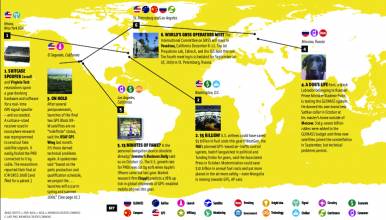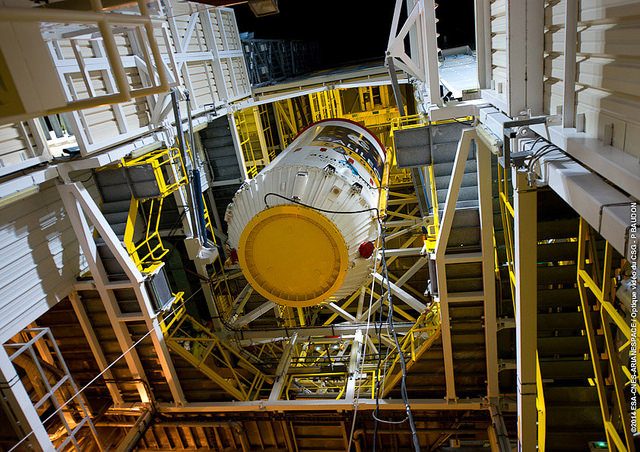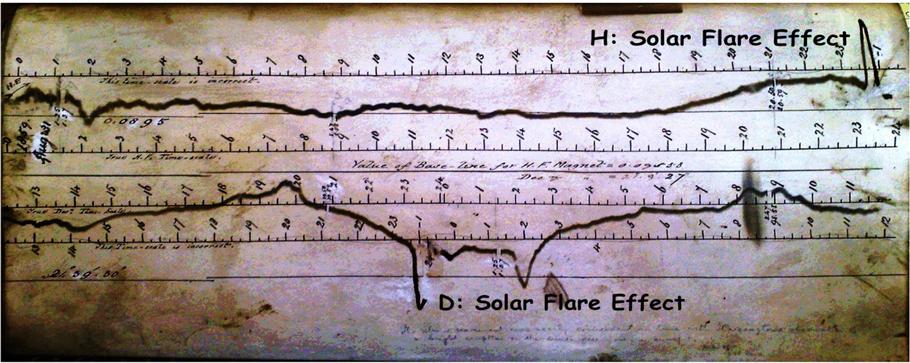 One of 12 magnetograms recorded at Greenwich Observatory during the Great Geomagnetic Storm of 1859
One of 12 magnetograms recorded at Greenwich Observatory during the Great Geomagnetic Storm of 1859 1996 soccer game in the Midwest, (Rick Dikeman image)
1996 soccer game in the Midwest, (Rick Dikeman image)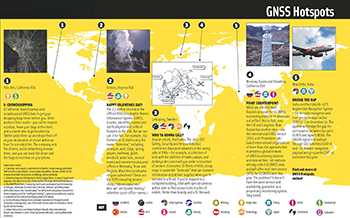
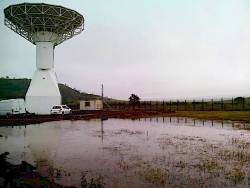 Nouméa ground station after the flood
Nouméa ground station after the flood A pencil and a coffee cup show the size of NASA’s teeny tiny PhoneSat
A pencil and a coffee cup show the size of NASA’s teeny tiny PhoneSat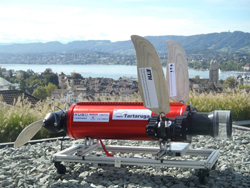 Bonus Hotspot: Naro Tartaruga AUV
Bonus Hotspot: Naro Tartaruga AUV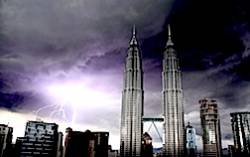
 Pacific lamprey spawning (photo by Jeremy Monroe, Fresh Waters Illustrated)
Pacific lamprey spawning (photo by Jeremy Monroe, Fresh Waters Illustrated) “Return of the Bucentaurn to the Molo on Ascension Day”, by (Giovanni Antonio Canal) Canaletto
“Return of the Bucentaurn to the Molo on Ascension Day”, by (Giovanni Antonio Canal) Canaletto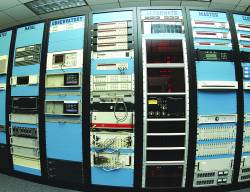 The U.S. Naval Observatory Alternate Master Clock at 2nd Space Operations Squadron, Schriever AFB in Colorado. This photo was taken in January, 2006 during the addition of a leap second. The USNO master clocks control GPS timing. They are accurate to within one second every 20 million years (Satellites are so picky! Humans, on the other hand, just want to know if we’re too late for lunch) USAF photo by A1C Jason Ridder.
The U.S. Naval Observatory Alternate Master Clock at 2nd Space Operations Squadron, Schriever AFB in Colorado. This photo was taken in January, 2006 during the addition of a leap second. The USNO master clocks control GPS timing. They are accurate to within one second every 20 million years (Satellites are so picky! Humans, on the other hand, just want to know if we’re too late for lunch) USAF photo by A1C Jason Ridder. 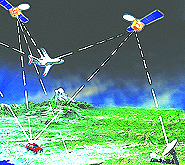 Detail of Compass/ BeiDou2 system diagram
Detail of Compass/ BeiDou2 system diagram Hotspot 6: Beluga A300 600ST
Hotspot 6: Beluga A300 600ST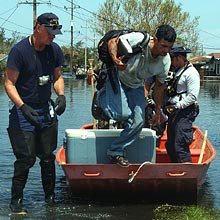

1. STORMY WEATHER
Belgium and Brazil
1. STORMY WEATHER
Belgium and Brazil
√ On the road to solar max in 2013, equatorial countries are at highest risk. Ionospheric density and low latitude storms cause GPS and WAAS signals to fade or fail altogether. Brazil’s GNSS-dependent surveying and offshore drilling could take a hit. European GNSS Agency (GSA) and Brazilian interests funded the CIGALA Consortium, led by Belgium’s Septentrio, to suggest receiver scintillation countermeasures.
2. BAD RECEIVERS
Warsaw, Poland and Afghanistan
√ A November 8 story on military procurement corruption by Polish newspaper Gazeta Wyborcza said GPS receivers used by the 2,600-member International Security Assistance Force in Afghanistan came up with sites in Africa and Poland instead of the in-country location. Field trials exposed these and other major defects, but the army bought them from Hertz Systems anyway.
3. EDGING FORWARD. . .
Oberpfaffenhofen, Germany and Fucino, Italy
√ In late October, SpaceOpal secured a US$270 million (€194million) contract for the Galileo ground control and monitoring segment, run from centers in Oberpfaffenhofen and Fucino. It is a German-Italian joint venture between Gesellschaft für Raumfahrtanwendungen (GfR) and Telespazio S.p.A. One hesitates to further embarrass the European GNSS by publishing dates, but here goes: initial deployment by 2014.
4. MILITARY SIGNALS
Moscow, Russia and New Dehli, India
√ Russia will give India access to real-time military signals from GLONASS, according to an October 26 story in India’s Business Standard. The Russian GNSS will be used in the jointly developed Fifth Generation Fighter Aircraft. With the signal, India gets instant troop and terrain location and communication. Expected delivery of the FGFA: 2016.
5. DUELING LAUNCHES
Baikonur space center, Kazakhstan and Xichang space center, China
√ Crisp December weather promises new GNSS satellites. The fifth Compass/BeiDou satellite this year — and the second IGSO spacecraft — will take off from Xichang launch center on board a Long March rocket (CZ-3A Chang Zheng-3A) and will cover high latitude and polar regions. On December 5, Russia plans to send into orbit the third set of three GLONASS-M satellites since 2010 began, completing the constellation. The first GLONASS-K 1may fly on December 24 — a nice holiday gift.

